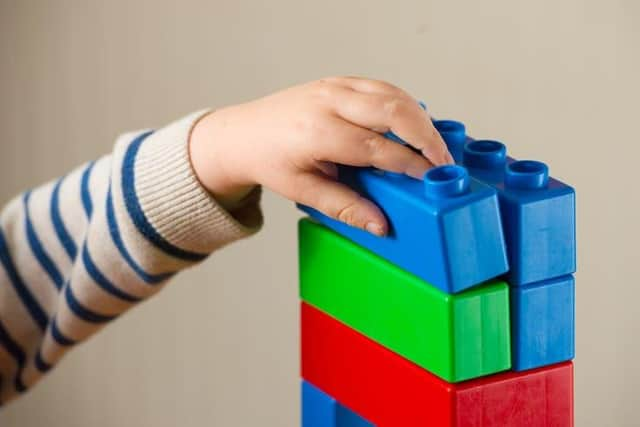Toddler development slows in Doncaster during pandemic
and live on Freeview channel 276
Charity Action for Children has called for urgent investment to prevent a national "childhood crisis", adding that the pandemic meant youngsters spent critical development time isolated and unable to socialise normally.
At the age of two, children are invited to undergo a developmental check to see how they are progressing mentally and physically.
Advertisement
Hide AdAdvertisement
Hide AdThe comprehensive check sees health visitors assess the child's communication, social interaction, problem-solving, fine motor skills (such as holding objects and drawing) and gross motor skills, such as walking without falling and kicking a ball.


Data from the Office for Health Improvement and Disparities shows just 80 per cent of Doncaster children reviewed met or exceeded expectations in all five areas in 2020-21.
That was down slightly from 82 per cent the previous year.
Across England, the proportion of toddlers achieving in all areas fell slightly to 82.9 per cent from 83.3 per cent the year before.
The biggest decrease was seen in the development of personal and social skills, which dropped from 93 per cent to 90 per cent.
Advertisement
Hide AdAdvertisement
Hide AdImran Hussain, Action for Children's director of policy and campaigns, said it was deeply worrying to see so many toddlers falling behind in their development.
He said the pandemic had worsened existing problems, adding: "We know that the first few years are critical to a child’s development so the fact that they have spent the majority of this precious time unable to socialise with family, spend time with other children or enjoy normal levels of play has been devastating.
"Our frontline staff see this every day with children of all ages struggling with their speech, behaviour, education and social skills."
The figures show in Doncaster, around 96 per cent of youngsters were on track with their fine motor skills, while 96 per cent had adequate gross motor skills.
Advertisement
Hide AdAdvertisement
Hide AdProblem-solving was on target for 97 per cent of youngsters and 84 per cent were above or exceeding expectations around communication skills, with 95 per cent able to socialise at an expected level.
In these confusing and worrying times, local journalism is more vital than ever. Thanks to everyone who helps us ask the questions that matter by taking out a subscription or buying a paper. We stand together. Liam Hoden, editor.
Comment Guidelines
National World encourages reader discussion on our stories. User feedback, insights and back-and-forth exchanges add a rich layer of context to reporting. Please review our Community Guidelines before commenting.
